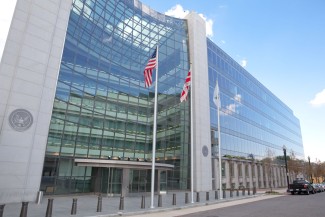A proposed federal rule takes an important step toward a cleaner economy by requiring public companies to disclose their climate risks and mitigation efforts. Still, the proposal needs strengthening because it largely overlooks one of the best ways to lessen these risks: energy efficiency.
The pending proposal from the Securities and Exchange Commission (SEC) would, for the first time, require companies to disclose the increasing risks they face because of climate change and their efforts to mitigate the risks. Yet it wouldn’t require them to consistently report their energy efficiency actions and achievements nor provide guidance on how to do so.
In comments submitted to the SEC today, ACEEE recommends the plan also require companies to more consistently include energy use and energy-saving measures.
As Climate Risk Grows, Investors Must Know
Climate change threatens the world’s well-being and compromises the global economy. With each passing year the impacts of the climate crisis intensify. For companies, these include risks to physical assets and property, as well as those posed by changing technology and laws as the world moves, albeit slowly, toward a low-carbon economy. For companies of all sizes, the costs of inaction may be tremendous and significantly harm investors.
SEC’s climate risk disclosure plan would require companies to provide investors consistent, comparable, and reliable information on their exposure to climate-related risks. With access to this data, investors could understand which companies are best positioned to hold value. And because companies would have to report their climate risks, they would have greater incentive to try to reduce their risks and greenhouse gas emissions.
Reports Should Disclose Energy Efficiency Measures
SEC’s plan is based on the Task Force on Climate-Related Financial Disclosures (TCFD) framework and includes reporting on greenhouse gas emissions, climate-related targets, mitigation activities, and transition plans. Though a widely accepted model for climate disclosures, the TCFD framework only briefly mentions energy efficiency.
Yet energy efficiency will play a critical role in reaching a net-zero-emissions economy. The International Energy Agency says that we need to triple the speed of efficiency improvements globally to help get us to net-zero greenhouse gas emissions by 2050.
While companies understand the general value of energy efficiency, managers who do not focus on it may miss reporting some efficiency opportunities. To provide greater clarity to investors, we recommend that SEC adopt a clear definition of energy efficiency and provide more guidance for consistent reporting of energy efficiency measures and progress. Reporting should use consistent metrics within specific industries and should cover activities in supply chains, a company’s facilities and operations, distribution, and product or service end use.
SEC Should Provide Guidance on Indirect Effects of Products and Services
One of the most critical and controversial pieces of the SEC’s plan is its requirement that some companies report indirect emissions from their upstream supply chains and downstream products, often called “scope 3” emissions. We support this provision, because for many companies the majority of the emissions they cause fall into this category. Without scope 3 disclosure, investors may get a very distorted picture of a company’s climate risk.
However, even scope 3 does not fully capture the emissions impacts from products and services, such as from insulation that reduces a building’s energy use (causing emissions reductions much greater than the emissions from manufacture and shipping of the insulation). Therefore, we recommend that SEC add guidance on how companies can estimate and report the indirect emission effects from these products and services. This “handprint” (distinguished from a company’s emissions “footprint”) is not directly within the control of a company but is often significant within their overall greenhouse gas emissions.
SEC’s Plan Is a Good Step, but It Should Be Strengthened
SEC’s plan to require climate-related financial disclosures will provide real benefits to investors. Those benefits will be even greater if the agency requires companies to transparently disclose energy use and standardize reporting of the energy efficiency measures that do so much of the work of reducing greenhouse gas emissions while also cutting costs.



